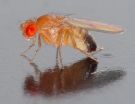Study adds to evidence daily aspirin linked to lower cancer mortality
2012-08-11
(Press-News.org) ATLANTA – August 10, 2012–A large new observational study finds more evidence of an association between daily aspirin use and modestly lower cancer mortality, but suggests any reduction may be smaller than that observed in a recent analysis. The study, appearing early online in the Journal of the National Cancer Institute (JNCI), provides additional support for a potential benefit of daily aspirin use for cancer mortality, but the authors say important questions remain about the size of the potential benefit.
A recent analysis pooling results from existing randomized trials of daily aspirin for prevention of vascular events found an estimated 37% reduction in cancer mortality among those using aspirin for five years or more. But uncertainty remains about how much daily aspirin use may lower cancer mortality, as the size of this pooled analysis was limited and two very large randomized trials of aspirin taken every other day found no effect on overall cancer mortality.
For the current study, American Cancer Society researchers led by Eric J. Jacobs, Ph.D., analyzed information from 100,139 predominantly elderly participants in the Cancer Prevention Study II Nutrition Cohort who reported aspirin use on questionnaires, did not have cancer at the start of the study, and were followed for up to 11 years. They found daily aspirin use was associated with an estimated 16% lower overall risk of cancer mortality, both among people who reported taking aspirin daily for at least five years and among those who reported shorter term daily use. The lower overall cancer mortality was driven by about 40% lower mortality from cancers of the gastrointestinal tract (such as esophageal, stomach, and colorectal cancer) and about 12% lower mortality from cancers outside the gastrointestinal tract.
The reduction in cancer mortality observed in the current study is considerably smaller than the 37% reduction reported in the recent pooled analysis of randomized trials. The authors note that their study was observational, not randomized, and therefore could have underestimated or overestimated potential effects on cancer mortality if participants who took aspirin daily had different underlying risk factors for fatal cancer than those who did not. However, the study's large size is a strength in determining how much daily aspirin use might lower cancer mortality.
"Expert committees that develop clinical guidelines will consider the totality of evidence about aspirin's risks and benefits when guidelines for aspirin use are next updated," said Dr. Jacobs. "Although recent evidence about aspirin use and cancer is encouraging, it is still premature to recommend people start taking aspirin specifically to prevent cancer. Even low-dose aspirin can substantially increase the risk of serious gastrointestinal bleeding. Decisions about aspirin use should be made by balancing the risks against the benefits in the context of each individual's medical history. Any decision about daily aspirin use should be made only in consultation with a health care professional."
###
Reference: Daily Aspirin Use and Cancer Mortality in a Large US Cohort, Eric J. Jacobs, Christina C. Newton, Susan M. Gapstur, Michael J. Thun. Journal of the National Cancer Institute; Published early online: August 10, 2012 [DOI:10.1093/jnci/djs318].
END
ELSE PRESS RELEASES FROM THIS DATE:
2012-08-11
Scientists affiliated with the UC Davis MIND Institute have discovered how a defective gene causes brain changes that lead to the atypical social behavior characteristic of autism. The research offers a potential target for drugs to treat the condition.
Earlier research already has shown that the gene is defective in children with autism, but its effect on neurons in the brain was not known. The new studies in mice show that abnormal action of just this one gene disrupted energy use in neurons. The harmful changes were coupled with antisocial and prolonged repetitive ...
2012-08-11
VIDEO:
This video features an interview with Tim Karr, a researcher at the Biodesign Institute at Arizona State University.
Click here for more information.
The propagation of every animal on the planet is the result of sexual activity between males and females of a given species. But how did things get this way? Why two sexes instead of one? Why are sperm necessary for reproduction and how did they evolve?
These as-yet-unresolved issues fascinate Timothy Karr, a developmental ...
2012-08-11
ZURICH – Animatronics aims at creating physical robots that move and look like real humans. Many impressive characters have been created in this spirit, like those in the Hall of Presidents attraction at Walt Disney World. Until now, creating animatronic copies of real human individuals is a difficult and labor-intensive process requiring the manual work of skilled animators, material designers and mechanical engineers. Researchers at Disney Research, Zürich, ETH Zürich, and Walt Disney Imagineering R&D have developed a new computational design process for cloning human ...
2012-08-11
ZURICH – Researchers at Disney Research, Zürich, ETH Zürich, and Cornell University have invented a system to digitize facial hair and skin. Capturing facial skin and geometry is a fundamental technology for a variety of computer-based special effects for movies. Conventional face capturing is well established and widely utilized in the entertainment industry to capture a three-dimensional model of an actor's face. However, up to now, no method was capable of reconstructing facial hair or even handling it appropriately. This omission is surprising as facial hair is an important ...
2012-08-11
Four tropical systems are marching across the Atlantic Ocean basin on August 10, 2012. NASA's GOES Project, located at NASA Goddard Space Flight Center in Greenbelt, Md. has been busy creating images and animations of the four tropical cyclones, Ernesto, the remnants of Florence, Tropical Depression 7, and System 93L.
NASA's GOES Project uses data from NOAA's Geostationary Operational Environmental Satellites (GOES), and the GOES-13 satellite covers the Atlantic Ocean basin and the eastern U.S. from a fixed orbit. GOES-13 provides continuous data that NASA makes into ...
2012-08-11
The Atlantic Ocean hurricane season is in full swing and the Eastern Pacific seems like it's trying to catch up. On August 10, NOAA's GOES-15 satellite captured Tropical Storm Gilma and a low pressure area that was once the Atlantic Basin's Tropical storm Ernesto, now moving off the western Mexican coast.
NASA's GOES Project, located at NASA Goddard Space Flight Center in Greenbelt, Md. has been busy creating images and animations of Tropical Storm Gilma and the remnants of Tropical Storm Ernesto as it crosses Mexico from the Gulf of Mexico and has begun its entrance ...
2012-08-11
Singing mice (Scotinomys teguina) are not your average lab rats. Their fur is tawny brown instead of the common white albino strain; they hail from the tropical cloud forests in the mountains of Costa Rica; and, as their name hints, they use song to communicate.
University of Texas at Austin researcher Steven Phelps is examining these unconventional rodents to gain insights into the genes that contribute to the unique singing behavior—information that could help scientists understand and identify genes that affect language in humans.
"We can choose any number of traits ...
2012-08-11
(Garrison, NY) With whole genome sequencing quickly becoming more affordable and accessible, we need to pay more attention to the massive amount of information it will deliver to parents – and the fact that we don't yet understand what most of it means, concludes an article in the Hastings Center Report. The authors are current or former scholars at the National Institutes of Health's Department of Bioethics.
Most analyses of the ethical issues raised by whole genome sequencing have been "futuristic forecasting," but the authors conclude that "this is problematic given ...
2012-08-11
Bell Nunnally & Martin LLP (www.bellnunnally.com) has added Jeffrey J. Ansley as a partner and member of the firm's Litigation and White Collar Defense and Internal Investigations practices. Ansley joins the firm from Curran Tomko Tarski LLP in Dallas.
"Jeff is a great addition to the firm. Our clients will benefit from his expertise and his experience as a former federal criminal prosecutor and enforcement attorney," said James Skochdopole, managing partner of Bell Nunnally.
Ansley serves as defense and trial counsel for clients in complex criminal ...
2012-08-11
Xen.org, home of the open source Xen hypervisor, today announced the final speaker line-up and agenda for its annual Xen Summit North America conference. The event will be held, August 27-28 in San Diego, California and is co-located with CloudOpen and LinuxCon North America.
XenSummit attracts prominent Xen community members and thought leaders from around the world to hear updates on future plans, research and new developments for technologies based on the Xen Hypervisor, as well as discuss the current state of projects applying Xen technology to areas like cloud computing, ...
LAST 30 PRESS RELEASES:
[Press-News.org] Study adds to evidence daily aspirin linked to lower cancer mortality



